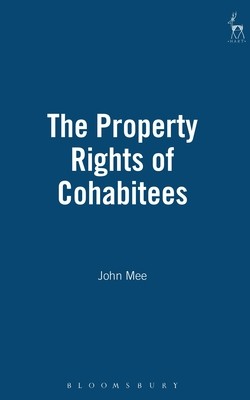
- We will send in 10–14 business days.
- Author: John Mee
- Publisher: Hart Publishing
- Year: 1999
- Pages: 388
- ISBN-10: 1901362760
- ISBN-13: 9781901362763
- Format: 15.6 x 23.4 x 2.2 cm, hardcover
- Language: English
- SAVE -10% with code: EXTRA
Reviews
Description
Although disputes upon the termination of a marriage are usually resolved in accordance with a legislatively determined scheme, similar disputes between unmarried cohabitees generally fall to be determined on the basis of rules developed by the courts. Much of the difficulty surrounding the area is attributable to the fact that it straddles a number of the traditional legal compartments, falling somewhere between equity, property, family, contract and restitution. The present book makes a determined effort to isolate each strand of the doctrinal tangle and to trace it back to its source. To this end, it considers developments in the established doctrines of resulting trust and estoppel before moving on to consider, in turn, the English 'common intention' trust; the modified resulting trust analysis favoured in Ireland; Lord Denning's abortive 'constructive trust of a new model'; the Canadian unjust enrichment approach; the Australian 'unconscionability' doctrine; and, finally, New Zealand's 'reasonable expectations' model. A comparative approach is taken throughout the book, culminating in a concluding chapter which draws together a number of themes that recur across the various doctrinal approaches
EXTRA 10 % discount with code: EXTRA
The promotion ends in 20d.06:41:17
The discount code is valid when purchasing from 10 €. Discounts do not stack.
- Author: John Mee
- Publisher: Hart Publishing
- Year: 1999
- Pages: 388
- ISBN-10: 1901362760
- ISBN-13: 9781901362763
- Format: 15.6 x 23.4 x 2.2 cm, hardcover
- Language: English English
Although disputes upon the termination of a marriage are usually resolved in accordance with a legislatively determined scheme, similar disputes between unmarried cohabitees generally fall to be determined on the basis of rules developed by the courts. Much of the difficulty surrounding the area is attributable to the fact that it straddles a number of the traditional legal compartments, falling somewhere between equity, property, family, contract and restitution. The present book makes a determined effort to isolate each strand of the doctrinal tangle and to trace it back to its source. To this end, it considers developments in the established doctrines of resulting trust and estoppel before moving on to consider, in turn, the English 'common intention' trust; the modified resulting trust analysis favoured in Ireland; Lord Denning's abortive 'constructive trust of a new model'; the Canadian unjust enrichment approach; the Australian 'unconscionability' doctrine; and, finally, New Zealand's 'reasonable expectations' model. A comparative approach is taken throughout the book, culminating in a concluding chapter which draws together a number of themes that recur across the various doctrinal approaches


Reviews